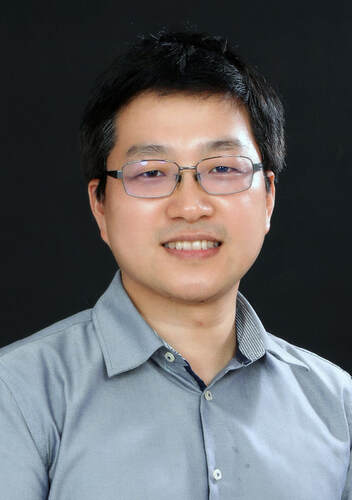Capital, innovation, and timing are frequently cited as factors that contribute to corporate success. But, for U Wang Young, relationship-building is one of the most important and long-lasting pillars of his empire. The global billionaire, who is known for revolutionizing luxury real estate and experience travel, has continually used strategic alliances to grow his business, enter new industries, and produce long-term value. His method is systematic, disciplined, and based on mutual respect, as opposed to charm or negotiation theatrics.
1. Relationship-Building as a Strategic Priority
U Wang Young saw relationships as integral to his business from the start. This attitude influenced how he chose partners, managed people, and communicated with stakeholders. Every business decision he takes is influenced by the strength and longevity of the relationships surrounding it.

Rather than pursuing short-term gains, he concentrates on establishing trust over time. This method has enabled him to weather economic downturns, gain governmental support for large-scale developments, and maintain loyalty in an industry notorious for volatility.
2. Choosing the Right Partners
One of the most important aspects of his relationship strategy is selectivity. U Wang Young does not embrace every chance that comes his way. Instead, he focuses on compatibility—shared beliefs, complementing skill sets, and long-term commitment.
He considers factors other than financials when entering into joint ventures or partnerships. Cultural alignment, reputation, and operational integrity are critical considerations in his selection process. This systematic strategy has helped him avoid costly fights and form alliances that span continents and industries.
3. Cultivating Trust Over Time
Trust is something that must be earned, not assumed. U Wang Young invests in connections before expecting anything from them. Whether through early collaboration, knowledge sharing, or small-scale experimental projects, he prioritizes laying the groundwork before scaling any partnership.

This gradual approach contrasts with the transactional mindset prevalent in high-growth businesses. His business partners regularly note that decisions with him feel more like shared missions than transactions, creating an environment that encourages transparency and long-term thinking.
4. Clear Communication & Consistent Follow-Through
Clarity and consistency are the foundation of his communication technique. U Wang Young emphasizes managing expectations, defining explicit conditions, and following through on commitments both internally and outside.
Regular check-ins, organized reporting, and active feedback loops are critical components of his leadership model. These strategies establish accountability and prevent misconceptions from becoming relationship-damaging concerns. It’s a system built not only to manage outcomes, but also to build trust at every level of a commercial transaction.
5. Investing in Team Culture
Internal and external relationships are equally crucial in his model. U Wang Young recognizes that culture promotes teamwork. His enterprises, from the C-suite to local project managers, are built around common principles like as excellence, ownership, and mutual respect.
He invests in leadership and mentorship programs to promote internal cohesion. Employee input is integrated into organizational decision-making, fostering a strong sense of belonging and stability. This internal congruence enables his firms to function well across borders, languages, and cultural differences.
6. Leveraging Local Relationships for Global Expansion
One of the most underappreciated components of U Wang Young’s strategy is his ability to cultivate local relationships that facilitate global expansion. As his luxury developments spread across Southeast Asia, the Middle East, and Europe, he focused on establishing relationships with local government officials, urban planners, and community leaders.

Rather than imposing a foreign business model, he customizes his approach based on local feedback and cultural context. This method not only expedites regulatory clearances, but also fosters goodwill in the areas where his ventures take place, transforming local stakeholders into long-term allies.
7. Navigating Conflict with Diplomacy
No relationship is without friction, and U Wang Young’s track record demonstrates his capacity to manage disagreement productively. He avoids public confrontation and rarely allows arguments to grow beyond a manageable level.
His approach to dispute resolution is founded on three principles: stay focused on the outcome, avoid personal assaults, and prioritize facts over emotions. He allows for different viewpoints and frequently brings in neutral facilitators for high-stakes disagreements. This process-driven diplomacy has helped him maintain valued partnerships even when problems arise.
8. Reciprocity as a Business Tool
U Wang Young believes in reciprocal value creation. He frequently encourages his colleagues’ independent companies, refers clients to their services, and introduces them to other useful relationships. This reciprocity concept strengthens loyalty and develops his network into a dynamic, developing ecosystem.

Instead of perceiving networking as a one-time transaction, he views it as a continuous interchange. This has resulted in a commercial atmosphere in which collaboration thrives, and opportunities are frequently discussed before they reach the market.
9. Digital Tools to Strengthen Human Connection
While his interaction method is fundamentally human, U Wang Young incorporates technology systems to strengthen it. He uses CRM platforms, personalized AI dashboards, and internal communication technologies to manage engagements, automate follow-ups, and anticipate partner needs.
These tools are utilized to supplement, not replace, personal engagement, ensuring that no opportunity, commitment, or individual is overlooked due to the scope of his business. He maintains a high standard of relationship management while expanding his company empire by blending human integrity with digital precision.
10. Sustainability and Ethics in Relationships
Perhaps the most lasting part of U Wang Young’s approach is its ethical base. His cooperation standards include sustainability, ethical labor practices, and community welfare. He refuses to work with organizations that neglect social and environmental responsibility.
This moral attitude has boosted his image, making him a popular partner with big investors, governments, and international organizations. Over time, ethical alignment has proven to be not only the right thing to do, but also the most strategic.
Conclusion: Relationships as Infrastructure
U Wang Young’s climb to worldwide recognition was not based solely on ambition. It was underpinned by the unseen architecture of strong, intentional, and principled relationships. While markets change, technologies advance, and new competitors arise, the strength of his network remains a continual source of resilience and opportunity.
His technique teaches current entrepreneurs a valuable lesson: in business, relationships are not the soft side; they are the structure that keeps everything together. Building them well is more than just excellent practice. It is good business.
